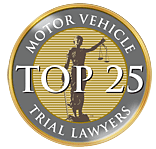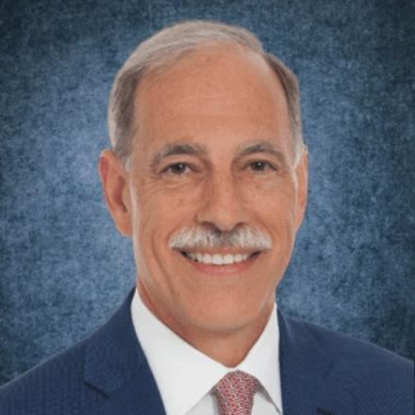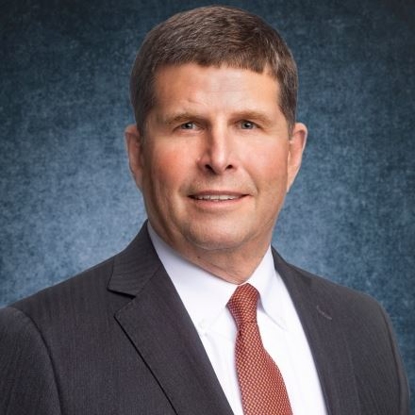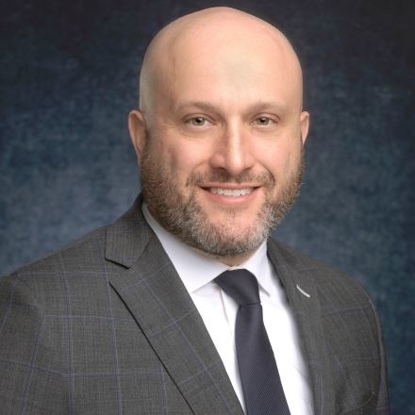
Newport News Truck Accident Lawyers
Big Rig Accidents Call for Big Representation
Kalfus & Nachman PC and the team of truck accident lawyers in Newport News have a reputation for going big when working on accident claims while still giving our clients the attention that only a small firm can deliver.
While we work diligently on your case and allow you to focus on your health, we will also be going head-to-head with large trucking companies and even larger insurance corporations. After you or someone you love has been seriously injured in a truck accident, there is really no other name in Virginia that you should choose to represent you!
Schedule a no-cost case evaluation with our Newport News truck accident attorneys by dialing (855) 880-8163 now.
Why Do Truck Accidents Happen
Truck accidents are a constant issue on America’s highways. Based on National Highway Traffic Safety Administration (NHTSA) data, a severe truck accident that causes death or a permanent injury occurs about four times every hour or approximately 100 times a day. This statistic does not even include minor truck accidents that cause more vehicular damage than physical injury.
Why are there so many truck accidents, though? What are the causes of so many tractor-trailer crashes? It might not come as a surprise, but many truck accidents can be traced back not to the negligence of the motorist in the smaller vehicle but instead to the mistakes of the truck driver and their employer, the parent trucking company.
The number one cause of trucking accidents in Virginia is high truck traffic on its highways. More trucks mean more accidents because they take longer to stop and require more space to maneuver. Interstate 81 (I-81) is the longest in Virginia, carrying an average of 26% trucks, and in some sections near Roanoke and Winchester, it's even 35%. Accident rates in the many areas of I-81 are relatively high compared to statewide averages because of its high truck traffic. At least half of all Virginia college students, their families, and tourists share I-81 with large trucks and other commercial vehicles. As trucks are larger and heavier than most passenger vehicles, they can cause more damage when they collide with other smaller vehicles.
Four of the worst yet most common causes of truck accidents are:
- Truck driver fatigue: Many truck drivers can be scheduled to work up to 14 hours a day and 70 days a week. Naturally, such long shifts lead to truck driver exhaustion, which puts everyone in danger. Fatigue will cause a trucker to have reduced reaction times, poor vehicle control, and blurred vision, assuming they do not simply fall asleep behind the wheel.
- Drug impairment: When a truck driver is fatigued, they can be tempted to use prescription medicines and over-the-counter substances to keep themselves awake. Unfortunately, the side effects of these drugs include general malaise and exaggerated exhaustion once the medicine wears off.
- Incorrectly loaded cargo: The cargo in or on the trailer of a commercial truck can drastically affect how the whole vehicle handles in transit. If the freight is not loaded correctly, it can cause braking and tipping hazards, as well as a risk of loose objects falling into the road behind the truck.
- Truck part defects: Every part of a big rig needs to be in top condition before it rolls onto the highway. Regular maintenance is usually required to check for any part issues that might cause a crash if they go unnoticed.
- Unqualified truck drivers- Trucking companies are required by law to provide training for all new hires, but there have been cases where they still hired unqualified drivers because they were cheaper than qualified ones or because they had connections with management at the company (or both). When this happens, it puts everyone else on Virginia's roads at risk--you included!
- Unsafe driving practices by truckers- Another common reason for trucking accidents is unsafe driving practices followed by truckers. Texting while driving, speeding, tailgating, erratic lane changes, drowsy driving, and driving while intoxicated are some dangerous driving behaviors often show
Trucking Company Liability After a Crash
Typically, the trucking company is the party that answers a truck accident claim, not the individual truck driver. This liability assignment is somewhat new, though. In the past, trucking companies could hire truckers are independent contractors and sidestep any liability after a truck accident because they were not “technically” the employers of the trucker who caused the crash.
Now, rules set by the Federal Motor Carrier Safety Administration (FMCSA) allow trucking companies to be held liable for the negligence of their truckers – whether they are employees or independent contractors – through the legal concept of respondeat superior.
Proof of liability is still crucial for a truck accident claim, though. You can be certain that the responding trucking company will try to defeat your argument using any method they can manage. If you want your claim to have a stronger chance of being successful, then you should allow our Newport News truck accident attorneys to manage it, gather evidence, and construct your argument to take into settlement negotiations or litigation.
Useful evidence to use a truck accident claim includes:
- Dashcam footage
- Truck driver’s shift logs
- Trucking company’s hiring practices
- Eyewitness statements
- First responder reports
- Medical records
How We Can Investigate Your Accident
Trucking companies and their insurers fight tenaciously to defeat trucking accident claims brought against them by injured drivers in smaller vehicles because losing would hurt their wallets and reputations. To give them an honest fight in settlement negotiations or litigation, you should come prepared with a thoroughly investigated claim. Our attorneys have been going head-to-head with major insurance companies since 1979, so we know many ways to improve your claim through careful investigations and relevant sources of evidence.
Accessing important documents such as the following can help:
- Hours of service records: We will want to know if the truck driver had been on the road for an unreasonable amount of time before your crash, which would suggest they were suffering from fatigue while driving.
- Trucker’s driving history: Does the truck driver have a history of speeding, intoxication, crashes, etc.? If so, then the trucking company could be liable for allowing an unsafe trucker to haul their freight.
- Cargo manifests: Bills of lading and cargo manifests can reveal that a trailer was overloaded. Overweight trailers increase the risk of the truck tipping over or slamming into the back of stopped traffic due to brake failures.
- Maintenance logs: Federal Motor Carrier Safety Administration (FMCSA) regulations require commercial trucks to be maintained on regular schedules. If a repair or inspection was missed, then it could increase the trucker’s liability in a crash.
- Event data recorder files: Some trucks are equipped with event data recorders (EDR) that track the vehicle’s speed, throttle position, brake use, steering angle, and more. It is much like a plane’s black box, and it can be the source of powerful evidence for the claimant to utilize.
It is crucial that we gain access to these documents as soon as possible. Trucking companies can often erase or destroy records after a few weeks without legal consequence, which means the best evidence for your claim could disappear. If you retain our legal services soon after your truck accident, then we can send a letter to the trucking company to preserve all relevant records.
How Much Does It Cost To File A Truck Accident Lawsuit In Virginia?
If you've been injured or suffered damages in a trucking accident, you may be wondering if you should seek legal assistance. But, more importantly, you might be concerned with the out-of-pocket costs associated with your lawsuit. In this video our attorney, Paul Hernandez, explains the costs involved with injury lawsuits and how our attorneys at Kalfus & Nachman operate on a contingency-fee basis. This means that your consultation is free and that we represent your case, including all of the necessary investigation for free. We only reimburse ourselves for our work and take our fee if we get a settlement or award for you.
How to Safely Share Virginia Roadways with Large Trucks
According to the National Highway Traffic Safety Administration’s (NHTSA) latest report, an estimated 439,206 crashes involved large trucks in 2020. In these collisions, around 146,930 people were hurt and 4,965 killed. The bulk of those killed (3,512 persons) were occupants in other vehicles, accounting for 71% of fatalities in large truck crashes. As vital as it is for large-truck drivers to understand their vehicles and acquire adequate training and certification, other road users must also learn how to navigate around big rigs safely. Here are some tips for safe maneuvering around them:
- Avoiding blind spots is one of the easiest ways to stay safe around large trucks. Before you merge or turn, be mindful of a truck's blind spots, and never assume a truck driver can see you. If you can't see the trucker in his side mirrors, he probably can't, either.
- Don't tailgate. Tailgating is one of the most dangerous things you can do around big rigs. The truck driver cannot see you in their rear-view mirror, so they won't know when you're there unless they turn around or look out of a side window. If you're following too closely behind them, they may not have enough time to react before merging into your lane--or worse yet, hitting your car if they brake suddenly!
- Maintain a safe distance between your vehicle and a truck to react and stop. A good rule of thumb is three seconds: keep track of how many seconds pass between when the truck passes something like a signpost or other marker (like another vehicle) until it passes that same object again; then count off three more seconds before passing your vehicle-and remember to stay within those parameters throughout any given trip.
- Do not cut in front of a truck or make an unsafe maneuver across its path. Always remember that a truck takes far longer to stop than a passenger car.
- Be mindful of a truck making a right turn. Trucks require more space to turn right, sometimes pushing into the left lane. Do not try to move around the truck by squeezing to the right. In addition to this, there is also often more weight being carried by trucks, and therefore, they need more time to slow down before making a turn.
- Practice safe driving and defensive driving. Make sure that your vehicle is in good working order, especially brakes and tires; stay within the speed limit; use turn signals when changing lanes or turning corners; obey traffic signals; don't get distracted by things like cell phones or GPS navigation systems while driving -these are just some of many things that could lead directly into an accident if done incorrectly.
Truck Accident FAQs
What should I do immediately after a truck accident in Newport News?
You should call 911 to report the accident, seek medical attention even if injuries seem minor, document the scene (photos, witness contact information), and avoid discussing fault. It’s also wise to consult a truck accident attorney before speaking to insurance companies.
Who can be held liable in a truck accident case?
In Virginia, liability may fall on several parties, including the truck driver, trucking company, vehicle manufacturer, cargo loaders, or maintenance providers—depending on the cause of the accident.
How long do I have to file a truck accident claim in Virginia?
Under Virginia law, you generally have two years from the date of the accident to file a personal injury lawsuit. This statute of limitations is strict—missing the deadline can result in losing your right to compensation.
What kind of compensation can I recover in a truck accident claim?
You may be entitled to recover:
- Medical expenses (current and future)
- Lost wages and reduced earning capacity
- Pain and suffering
- Property damage
- Wrongful death damages (if applicable)
How is fault determined in truck accidents in Virginia?
Virginia follows a pure contributory negligence rule. This means if you’re found even 1% at fault, you may be barred from recovering compensation. That's why strong evidence and legal representation are critical.
Do I need a lawyer for a truck accident claim in Newport News?
Yes, it’s strongly recommended. Truck accidents involve complex regulations (like federal trucking laws), large insurance policies, and aggressive legal defense. Our Newport News truck accident lawyer can help protect your rights and maximize your compensation.
Always Ready to Fight for Our Clients
Our Newport News truck accident lawyers of Kalfus & Nachman PC know that trucking and insurance companies are always eager to fight back against any injury claim brought against them. Lucky for our clients, we love to fight back. When faced with a challenge, our team rises to the occasion because it is both our passion and the right thing to do for the people in our communities.
See the difference our Newport News truck accident attorney can make for your truck accident case. Call (855) 880-8163 or contact online.

How Is Kalfus & Nachman Different?
-
You Will Pay No Fees Unless We Win Your Case
-
We Have Recovered Millions of Dollars for Our Clients
-
Our Attorneys Are Well-Equipped to Fight Insurance Companies
-
We Have Successfully Handled Thousands of Cases Since 1979
-
We are a Full-Service Firm with Multiple Locations
-
Se Habla Español

Awards & Accolades

We Mean Business
Read Our Recent Case results
-
$10.9 Million Traumatic Brain Injury
-
$10.5 Million Truck Accident
-
$7 Million Auto Accident
-
$5.147 Million Truck Accident
-
$2.15 Million Premises Liability

Meet Our Team
Tell Them We Mean Business
-
 Paul R. Hernandez Attorney
Paul R. Hernandez Attorney -
 A.J. Kalfus of Counsel
A.J. Kalfus of Counsel -
 Stuart L. Nachman of Counsel
Stuart L. Nachman of Counsel -
 Richard F. Aufenger, III of Counsel
Richard F. Aufenger, III of Counsel -
 Jesse M. Suit III of Counsel
Jesse M. Suit III of Counsel -
 Thomas A. Fitzgerald, II Attorney
Thomas A. Fitzgerald, II Attorney -
 Seth D. Scott Attorney
Seth D. Scott Attorney -
 Christopher I. Jacobs Attorney
Christopher I. Jacobs Attorney -
 Michael J. Levens Attorney
Michael J. Levens Attorney -
 Colin P. O'Dawe Attorney
Colin P. O'Dawe Attorney -
 Neal C. Schulwolf Attorney
Neal C. Schulwolf Attorney -
 Deborah B. Vaughn Attorney
Deborah B. Vaughn Attorney -
 Michael Sternberg Attorney
Michael Sternberg Attorney -
 Olivia T. Donahue Attorney
Olivia T. Donahue Attorney -
 Brian A. Thomasson Attorney
Brian A. Thomasson Attorney -
 Jeffry A. Sachs Attorney
Jeffry A. Sachs Attorney -
 Gregory E. Camden Attorney
Gregory E. Camden Attorney -
 Gregory L. Sandler, Esq. Attorney
Gregory L. Sandler, Esq. Attorney -
 Massimo Morabito Attorney
Massimo Morabito Attorney



































